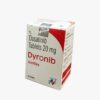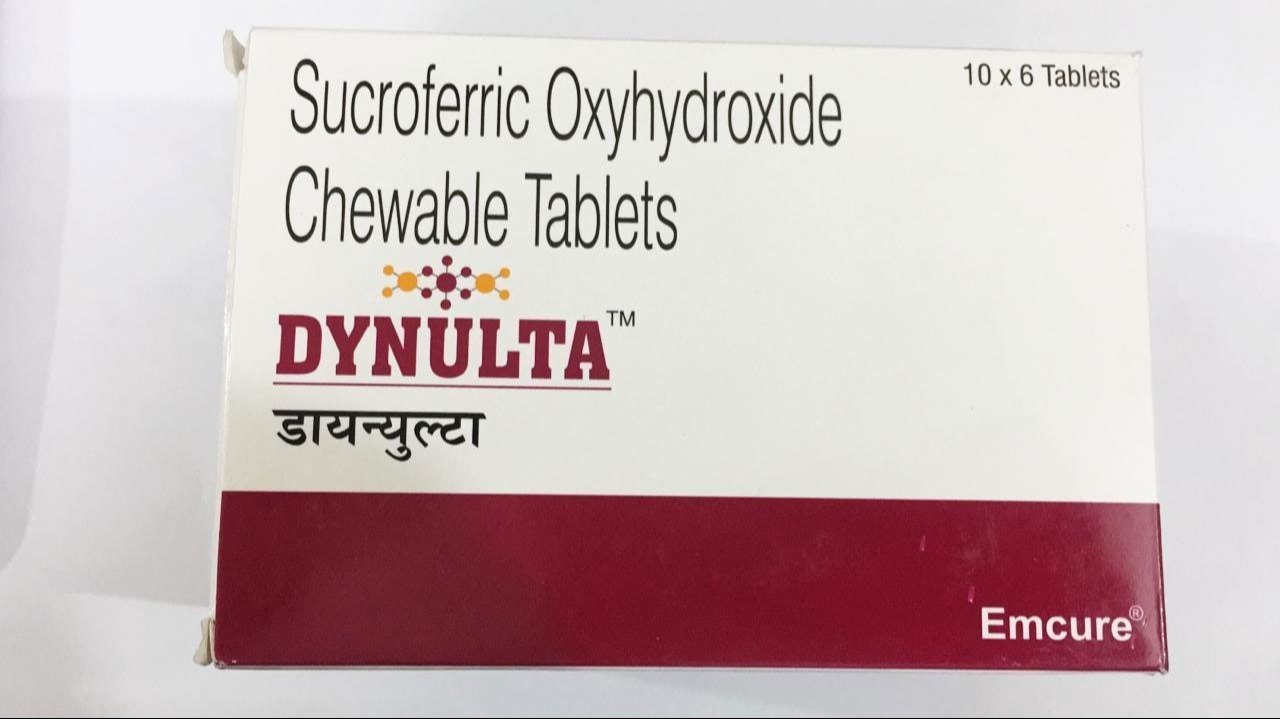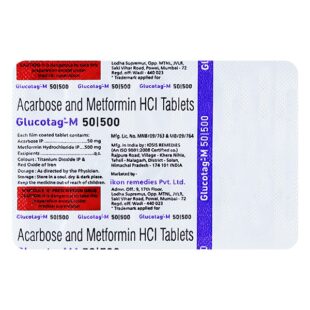- Your cart is empty
- Continue Shopping
Dynulta Tablet
₹338.15
Uses of Dynulta Tablet
- Treatment of high phosphate levels in the blood
Introduction to Dynulta Tablet
Dynulta Tablet contains the active component sucroferric oxyhydroxide. It is classified as a phosphate binder. This medication treats hyperphosphatemia in patients with chronic kidney disease (CKD) who are on dialysis. Hyperphosphatemia is characterized by abnormally high levels of phosphate in the blood, a common complication of CKD. This medicine contains iron, which can benefit individuals with CKD who often experience iron deficiency anemia. Providing iron and phosphate binding helps address iron deficiency and support red blood cell production.
You should not take Dynulta Tablet if you are allergic to it or its components. Allergic reactions can range from mild to severe and may include symptoms such as rash, itching, swelling, dizziness, or difficulty breathing. Patients with iron overload disorders, such as hemochromatosis (iron overload disorder), or those receiving high-dose intravenous iron therapy should use Dynulta Tablet cautiously. The use of this medicine in pediatric patients has not been extensively studied, and its safety and effectiveness in this population have yet to be established.
Therapeutic Effects of Dynulta Tablet
Dynulta Tablet is a medication that effectively lowers elevated phosphate levels in the blood, primarily in patients with chronic kidney disease (CKD) who are on dialysis. By binding to dietary phosphate in the gastrointestinal tract, this medication prevents its absorption into the bloodstream, thereby reducing the overall phosphate burden. This helps to manage hyperphosphatemia, a common complication of CKD, and minimize associated risks such as bone disease and cardiovascular complications.
Interaction of Dynulta Tablet with other drugs
Inform the doctor about your medicines, including prescription, over-the-counter, nutritional or vitamin supplements, and herbal products. Certain medications may interact with Dynulta Tablet, reducing effectiveness by causing undesirable side effects.
More Information about Dynulta Tablet
- Stored at controlled room temperature, between 20°C to 25°C (68°F to 77°F).
- Keep away from moisture, heat, and light.
- It should not be frozen.
- Keep away from children and pets.
How to consume Dynulta
To use Dynulta , follow the instructions provided by your healthcare professional or the guidelines on the medication packaging. Typically, this medication is taken orally as chewable tablets with meals or shortly after eating. The dosage and frequency of administration will depend on your specific medical condition and individual needs. It is important to chew the tablets thoroughly before swallowing. You may consult your healthcare provider for alternative administration options if you have difficulty chewing.
Safety Advices for Dynulta
Pregnancy
Consult your doctor
The safety of Dynulta during pregnancy has not been well established, and there is limited clinical data regarding its use in pregnant women. Therefore, caution is advised when considering the use of this medication during pregnancy.
Breast Feeding
Consult your doctor
The safety of Dynulta during breastfeeding has not been well studied, and there is limited information on its excretion into human breast milk. Therefore, caution is advised when considering the use of breastfeeding.
Lungs
Consult your doctor
Dynulta is not known to have specific safety concerns related to the lungs. If you have a pre-existing lung condition or are concerned about the safety of this medication in relation to your lungs, it is important to discuss your concerns with your healthcare provider.
Liver
Consult your doctor
The safety of Dynulta in individuals with liver disease has not been extensively studied. If you have liver disease or concerns about the safety of your liver, it is important to discuss these concerns with your healthcare provider.
Alcohol
Unsafe
Excessive alcohol consumption can negatively affect your health, especially if you have underlying liver disease or other medical conditions. Alcohol can also contribute to dehydration, which may affect the management of certain medical conditions.
Driving
Unsafe
Dynulta can cause side effects that may impair your ability to drive or operate machinery safely. Common side effects are drowsiness and dizziness. These effects can affect your coordination, reaction time, and judgment, making driving unsafe or performing tasks requiring alertness.
Side Effects of Dynulta
Dynulta cause some side effects like all medications, although not everyone will experience them.
Serious:
- Allergic reaction
- Breathlessness
- Black stools
Common:
- Diarrhea
- Discolored feces (usually dark or black)
- Constipation
- Nausea
- Vomiting
- Stomach pain or discomfort
- Indigestion or heartburn











Reviews
There are no reviews yet.